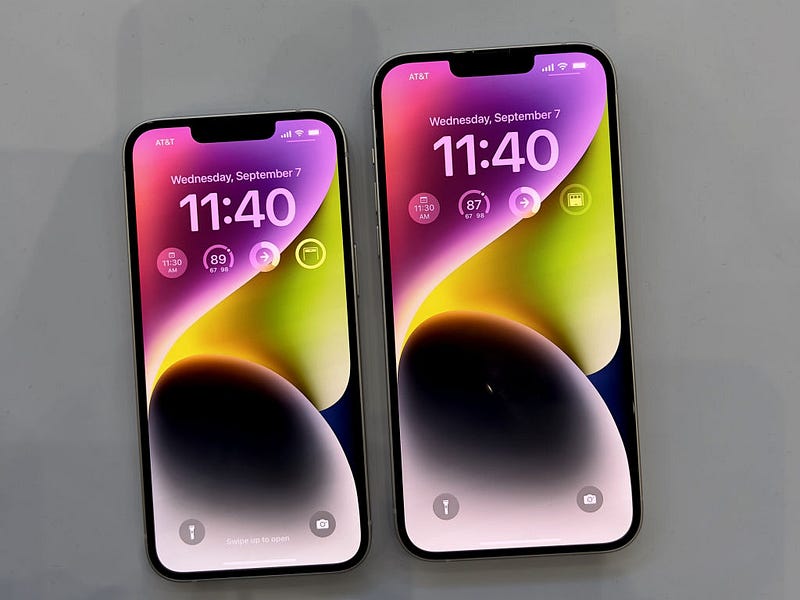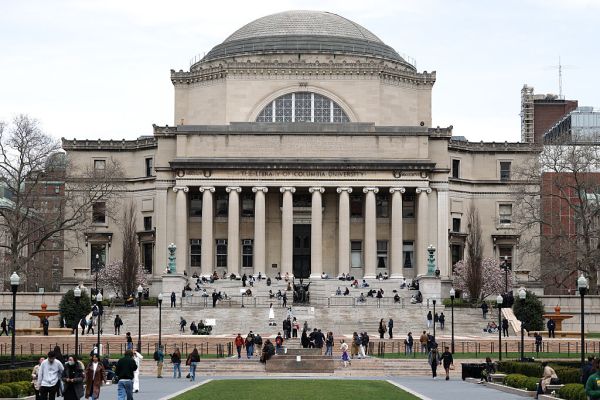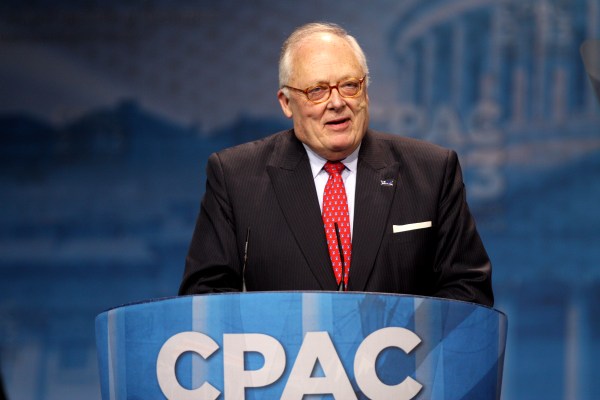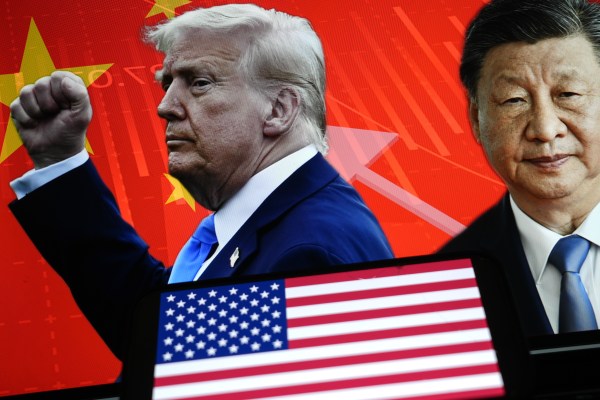Yesterday, Apple announced new phones, new watches, new earphones, and new services—all of which look awesome. The company continues to be an innovation and economic juggernaut, with more than $94.7 billion in profits on revenues of $365.8 billion last year, and a total net worth of more than $2 trillion. But that’s not the only news made by the company this week.
On Tuesday, it was reported that Apple has selected China’s Yangtze Memory Technologies Company (YMTC) to supply NAND flash memory chips for its phones and other devices. It’s unclear if YMTC chips will be present in devices outside of China, but it’s strongly suspected and their selection as a supplier introduces yet another supply chain security threat for all consumers and further binds the Silicon Valley leader to the United States’ chief global challenger.
To understand just how significant this development is, an explanation of NAND chips is required.
NAND chips are a type of commodity semiconductor, which means they’re made in large batches and are used in everything from phones to barcode scanners to washing machines. These are the workhorse chips, not thoroughbred chips like the cutting-edge graphic processing units (GPUs) or complex systems-on-a-chip (SoCs) that you’ll find in video games or artificial intelligence applications. In phones and other mobile devices, NAND can be used for long-term storage of photos, music, and other data. They’re about the size of your pinky fingernail and can hold tons of information. While the economic margins on these chips are thin, their utility and ubiquity make them essential to the global economy. Which brings us to YMTC.
Beijing has made no secret that it looks to wean itself from foreign semiconductor supply chains and to eventually become the world’s leading chip maker. When it comes to memory chips like NAND, YMTC is China’s national champion and it’s already taking its place among the globe’s top producers, announcing last month that it is now building 232-layer flash memory chips—the state-of-the-art for NAND semiconductors. Just a few months ago, there was speculation that the Biden administration would ban the export of tools to China necessary to build NAND chips with more than 128 layers. But it looks like we’re too late and that’s a real problem, in part, because YMTC is effectively owned and run by the Chinese government and has deep ties to the People’s Liberation Army (PLA)—more on that in just a bit.
So, why would Apple—especially considering all that’s going on between Washington and Beijing—hug the Chinese Communist Party (CCP) even tighter by selecting YMTC? It’s a good question with a few different answers.
First, Apple will cite disruptions to global supply chains over the last few years and credibly argue that it must diversify to ensure access to NAND chips. While they already use several providers like Kioxia, Micron, and Samsung, a recent contamination problem at a Japanese factory led to the loss of more than 6.5 exabytes (the equivalent of 6.5 million 1-terabyte external hard drives) of NAND chips, underscoring Apple’s need for even greater resilience. So, there is a credible “defensive” justification.
But there’s also an “offensive” rationale for going with YMTC: maximizing profits. Memory chip manufacturing has consolidated from 25 companies in 1990 to only six major companies—Intel, Micron Technology, Samsung Electronics, SK Hynix, Toshiba, and Western Digital—today. This consolidation, in combination with steady demand, has caused the price of NAND chips to remain largely stable and reasonably profitable. But Apple, and specifically CEO Tim Cook, have become legendary at using the company’s massive buying power and supply chain proficiency to dominate markets and to squeeze every drop of profit from them. In the case of NAND chips this means the titans in Cupertino would prefer to drive costs down even further while also ensuring they get first crack at limited supplies. Partnering with YMTC can accomplish both aims.
YMTC is owned by a group of state entities: the Hubei Science and Technology Investment Group, the state university-managed investment fund of Tsinghua Unigroup, and Beijing’s National Integrated Chip Industry Investment Fund. These entities provide billions in state subsidies that allow YMTC to drastically underprice the competition, which Apple is certainly happy to benefit from. As competitors get priced out of the NAND market, YMTC will further consolidate its position. Apple will also benefit by being the company’s chief customer—ensuring iPhones always have the chips they need while constraining the competition’s access to these same semiconductors. This is the Apple way.
When Tim Cook joined the company in 1998, the company was struggling. But in less than a year, as Steve Jobs was introducing new products, Cook was using his industrial engineering skills to completely revamp Apple’s supply chains. One of his shrewd strategies was to pre-purchase holiday season air freight so that he could get it at a lower cost while also leaving competitors to scramble for shipping space when the holidays arrived. He perfected the company’s just-in-time manufacturing model, reducing the number of vendors from more than 100 to 24 and halving the number of company warehouses. This well-oiled machine is now so effective that the company reportedly turns over its inventory once every five days.
So then, there is a real financial incentive for Apple’s choice of YMTC and, while it may be dirty pool it’s not illegal, so what’s the problem? I’ll offer three.
First, this could lead to a massive surveillance dragnet. Any device relying on a chip that is made by YMTC is inherently susceptible to CCP data theft and espionage. We know the CCP has a voracious appetite for data, that Chinese law requires companies to aid the government in getting data, and that compromising iPhones could give the Beijing government access to hundreds of millions of devices around the world. These are the same concerns underlying American skepticism of Huawei, ZTE, Hikvision, and other Chinese technology companies. Apple will offer assurances that this could never happen, but that boils down to a cosmic bet that one company can perfectly resist the efforts of the entire Chinese government apparatus. Color me skeptical.
Second, if YMTC is allowed a dominant position in the semiconductor market, the risk of its chips being used in a broad range of commercial products and even in military hardware also goes up. It won’t have done us much good to ban Huawei 5G networks if most of the devices connecting to other networks are still spying for the CCP. On the military side, while the Pentagon’s Trusted Foundry Program and Trusted Integrated Circuit Strategy aims to reduce the risk of Chinese chip infiltration into critical defense systems, the sheer scale of our defense industrial base and its countless subcontractors makes this a near-Sisyphean effort. Just yesterday, it was reported that the sale of American F-35 fighter jets is on hold because a Chinese manufacturer has slipped into the aircraft’s supply chain and raised serious security concerns. Similarly, if allowed a foothold in either commercial or military hardware, these chips could be used for data harvesting or even as a type of “kill switch” that could essentially turn off our economy or our military. That may sound hyperbolic, but this is the precise type of “strategic access” that the United States and other top-tier intelligence actors work to cultivate and to have ready when things go sideways.
Finally, there are the positive effects that will accrue to the Chinese military and economy. With a marquee customer like Apple, YMTC’s expertise and market influence will skyrocket. The two companies will constantly be refining these chipsets to be more cost-effective, efficient, and powerful. YMTC’s close relationship with the PLA means that Apple will not be the only beneficiary of these improvements. This will likewise facilitate Beijing’s broader efforts to improve its position in the global semiconductor market.
To put it plainly: At a time when the United States has identified China as our chief strategic challenger; when our national security leaders have publicly stated that Chinese government and industrial espionage is responsible for the “greatest transfer of wealth in history;” and when we have just passed the $50 billion CHIPS Act with the specific intention of reinvigorating American semiconductor manufacturing and arresting Chinese chip fabrication; Apple has decided to use its considerable wealth and influence to invest in Beijing’s national champion. For years, Apple has pushed back on any effort to contain Beijing, arguing that the best way to beat China is to “out race them.” Now, however, it seems the company is perfectly happy to help China catch up and run faster.
So, what should be done?
Well, we should begin by asking Tim Cook some questions. Apple has done a decent job of staying out of congressional hearings; that should end. In fact, Cook should have to appear before multiple committees of jurisdiction in both the House and Senate—where he can explain and defend his company’s actions. He should be forced to articulate how he reconciles his constant crowing about “privacy being a human right” and his, not just indifference to, but active facilitation of Chinese surveillance and oppression around the world. He should tell Congress why, under his leadership, Chinese companies are now the majority of Apple’s suppliers and divulge if the Chinese government specifically required the selection of YMTC. I’d also like to hear why he thinks he should continue to enjoy the privileges and protections of being an American company even while he fundamentally undermines the data and national security interests of our government and citizens.
Maybe he’ll simply reply, “If you don’t want us to work with YMTC, pass a law.” Okay, fair enough.
We can begin by adding YMTC to the U.S. Entity List, restricting the import of Apple products with YMTC chips via Executive Order 13873, or completely prohibiting the shipment of YMTC chips to Apple at all by creating a Foreign Direct Product Rule to that end. The company’s direct ties to the Chinese government and PLA, its suspected violations of sanctions on chips sales to Huawei, and a host of anticompetitive business practices, more than justify these and several other actions. And if Apple must be compelled to prioritize the national and economic security of the only nation on earth where it could enjoy the success that it has, well then, we should oblige it.
On a more personal level, I’m considering my own choices. I’m writing this on my MacBook Air with my iPhone and iPad Pro next to me. My elevated heart rate is being tracked by my Apple Watch and I’ll probably need to stare at a movie on one of my two Apple TVs just to calm down. Or maybe I’ll listen to my “Chillax” playlist with my noise-canceling AirPod Pros. Suffice to say, I like Apple products and have been deeply ensconced within the company’s “walled garden” for years. But the company’s seemingly bottomless acquiescence to the Chinese government and infinite capacity for moral posturing and hypocrisy have me reconsidering my options. Maybe we all should.
There’s no denying that Tim Cook has masterfully led Apple to become one of the most dominant, efficient, and profitable companies of all time. But there’s also no denying that this has been decisively enabled by embracing and even helping Communist China looking to challenge and displace the United States. It’s gross and suggests a rotting of Apple’s moral core.
That’s it for this edition of The Current. Be sure to comment on this post and to share this newsletter with your family, friends, and followers. You can also follow me on Twitter (@KlonKitchen). Thanks for taking the time and I’ll see you next week!







Please note that we at The Dispatch hold ourselves, our work, and our commenters to a higher standard than other places on the internet. We welcome comments that foster genuine debate or discussion—including comments critical of us or our work—but responses that include ad hominem attacks on fellow Dispatch members or are intended to stoke fear and anger may be moderated.
With your membership, you only have the ability to comment on The Morning Dispatch articles. Consider upgrading to join the conversation everywhere.